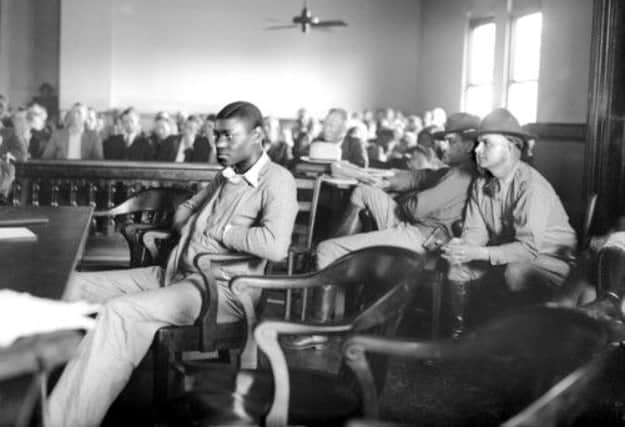Alabama: Pardons for Scottsboro Boys


The board made its unanimous decision yesterday during a hearing in Montgomery for three black men whose convictions were never overturned in a case that came to symbolise racial injustice in the Deep South in the 1930s.
Nine black men were falsely accused of raping two white women on a train in Alabama in 1931. The men were convicted by all-white juries, and all but the youngest defendant was sentenced to death.
Advertisement
Hide AdAdvertisement
Hide Ad“Today, we were able to undo a black eye that has been held over Alabama for many years,” said Eddie Cook, the board’s assistant executive director.
Following the decision, the state senator who managed to have a law passed in Alabama to permit posthumous pardons said the Scottsboro Boys’ lives were ruined by officials and juries who ignored evidence and that it was time to right a wrong.
“It is a promising reminder of how far we have come from those regretful days in our past,” said Republican senator Arthur Orr of Decatur. The founder of the Scottsboro Boys Museum in Scottsboro, Sheila Washington, said the pardons “give the history books a new ending - not guilty”.
The Scottsboro Boys case became a symbol of racial injustice in America. Their appeals resulted in US supreme court rulings that criminal defendants were entitled to effective counsel and that people of colour could not be systematically excluded from criminal juries.
The case inspired songs, books and films. A Broadway musical was staged in 2010, the same year a museum dedicated to the case opened in Scottsboro.
Five of the men’s convictions were overturned in 1937 after one of the alleged victims recanted her testimony. One defendant, Clarence Norris, received a pardon before his death in 1976. At the time, he was the only Scottsboro Boy known to be alive. Nothing was done for the others because state law did not permit posthumous pardons.
In April, the Alabama legislature passed Mr Orr’s bill to allow the parole board to issue posthumous pardons for old cases where the convictions involved racial discrimination.
The three Scottsboro Boys considered by the parole board yesterday were Haywood Patterson, Charles Weems and Andy Wright. The board said the other five – Olen Montgomery, Ozie Powell, Willie Roberson, Eugene Williams and Roy Wright – weren’t eligible under the new law because their convictions were overturned on appeal and the charges dropped.
Advertisement
Hide AdAdvertisement
Hide AdWashington said some of the Scottsboro Boys changed their names and started new lives. The museum, working with students and faculty members at the University of Alabama, has found the graves of four of the nine. Ms Washington said the next goal is to find all the graves and erect historical markers.
“They didn’t know how much they meant in history while they were alive,” she said.
Following the decision, the parole board presented pardon certificates to Ms Washington.
She said the certificates would be put on display at the museum during a ceremony planned for 21 December. “It is a great day for freedom,” she said.